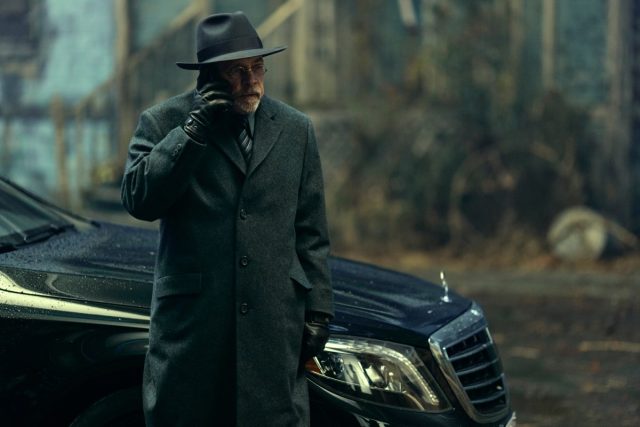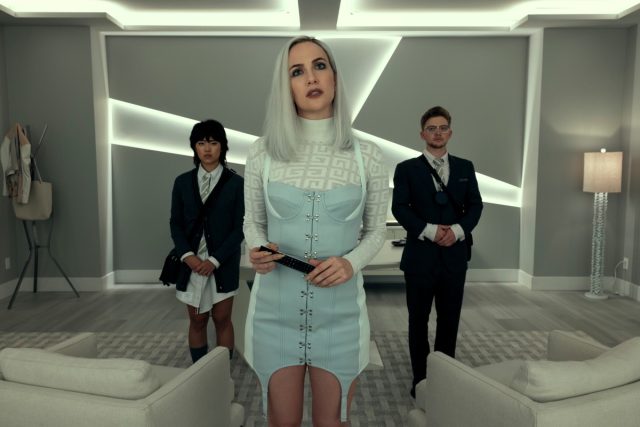Halloween approacheth yet again, and that means it's time for another classic horror miniseries from Mike Flanagan and Netflix, the partnership that brought us The Haunting of Hill House, The Haunting of Bly Manor, and Midnight Mass. For his final (sob!) project with Netflix, Flanagan has gifted us with The Fall of the House of Usher. To say it's an adaption of the famous short story by Edgar Allan Poe wouldn't be doing the miniseries justice. What Flanagan has done is something quite extraordinary: it's more an inventive remix of the best of Poe's oeuvre, creating something that's entirely Flanagan's own while still channeling the very essence of Poe.
(Some spoilers below, but no major reveals.)
In Poe's original short story, an unnamed narrator visits his old friend Roderick Usher, who has fallen ill along with his twin sister Madeline—the last surviving members of a once prominent family. The nature of their illness is never disclosed, but Roderick appears to be going mad, convinced his fate is tied to the Usher house—and there is an ominous crack starting from the roof running down the front of the house. Roderick accidentally entombs Madeline alive, believing she has died, and one dark stormy night, she re-emerges and attacks him in revenge. As the twins expire and the narrator flees in terror, the entire house splits in two and sinks into a nearby lake. It's pure Gothic horror, a genre that inspired Poe's many short stories and poetry in the early 19th century.
In Flanagan's version, Roderick Usher (Bruce Greenwood) and his twin sister Madeline (Mary McDonnell) are the CEO and COO, respectively, of Fortunato Pharmaceuticals, a vast corporate empire that the pair ruthlessly built up over 40 years. The keystone of their business is a wildly popular pain-killing drug called Ligodone, which they claim is safe and non-addictive despite many, many deaths over the years resulting from abuse of the drug.



















 Loading comments...
Loading comments...
